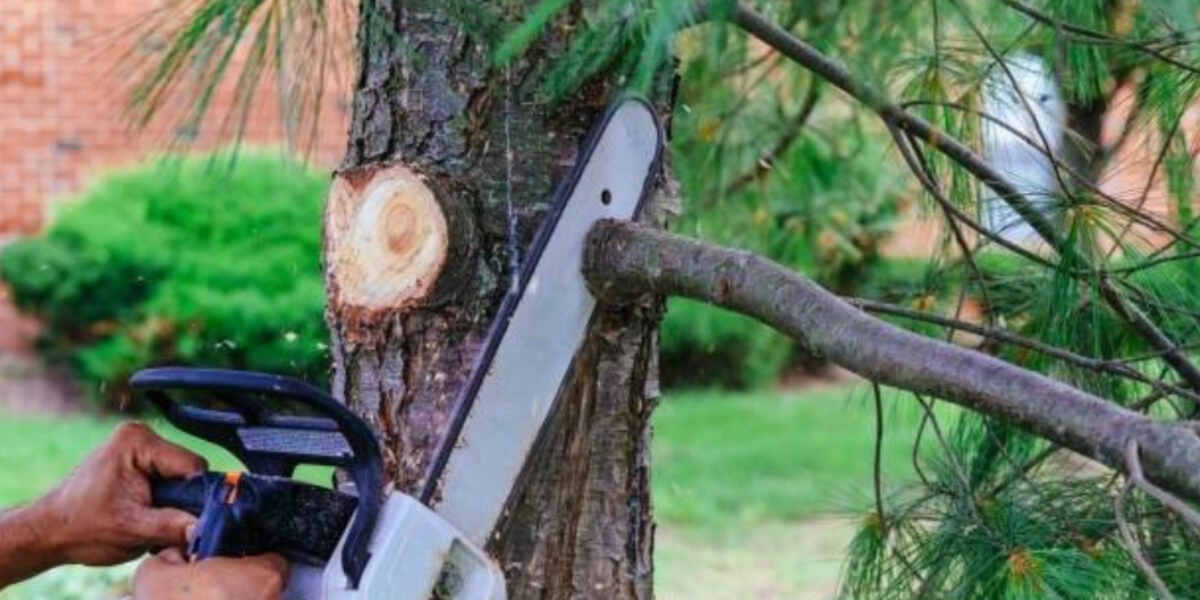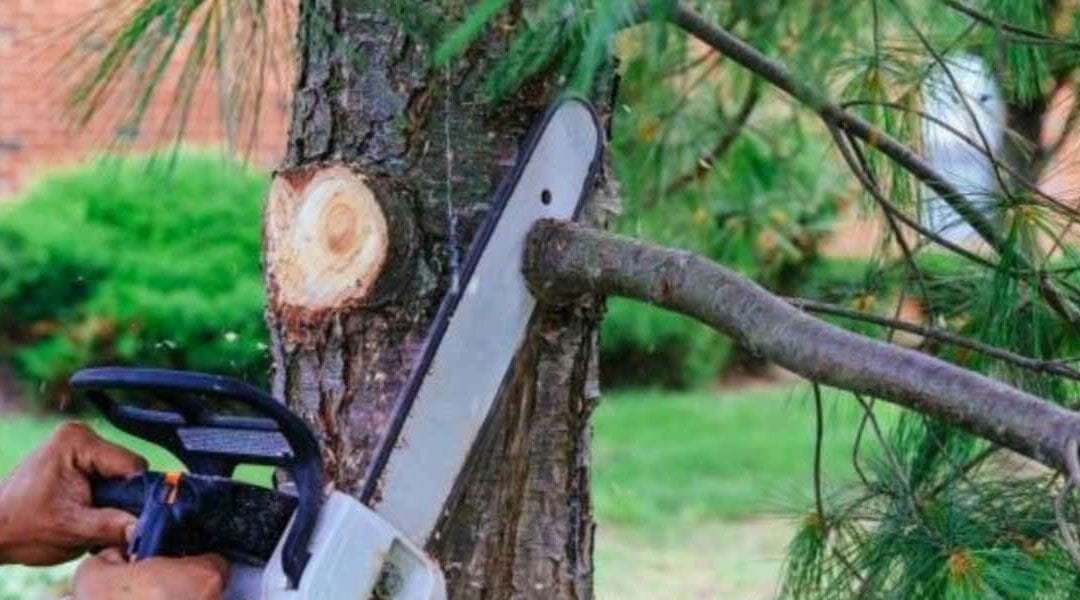Have you been asking yourself, “Why is my tree trunk turning black?” As worrying as the various possibilities might be, this is not always the end for a tree. And there is usually a way to save your tree if you enlist the right help early enough.
Trees are under constant threat from insect infestations, other pests, and tree diseases. But trees that are under attack will often display warning signs, of which the tree’s trunk turning black happens to be one.
This article will look at a few reasons for the blackening of your tree’s trunk. It will also touch on how opting for Louisville’s expert tree service could restore the tree’s health.

Reasons Your Tree Trunk Is Turning Black
Tree trunks typically turn black when the tree has a disease or an insect infestation. Identifying the exact disease or infestation will depend on the tree’s species and its symptoms.
For instance, Steganosporium Ovatum is a fungal infection that can affect the tree. It causes black structures to form, which then merge to create a solid black layer on the tree’s trunk. Tree removal is the quickest way to resolve the situation and prevent the disease from spreading to neighboring trees.
But before chopping down your tree, there are a few measures you might want to consider trying.
How to Prevent Your Tree’s Death
You’ve probably spent years caring for your tree, so noticing its trunk blackening can be disheartening. However, not all hope is lost. Though the measures you implement will vary according to the disease, you can save the tree from dying.
Here are a few common tree diseases that could turn your trunk black, along with what you can do to address them.
Gloomy Scale
Gloomy scale is an insect infestation that also causes branch dieback, bumpy textures, and a thinning canopy. Experts will try applying horticultural oils during your tree’s dormant months. Spraying the tree with insecticides in early spring can also help.
Sooty Mold
Why is my tree trunk black? Well, are there plenty of insects feeding on your trees? Sometimes, as they feed, they leave behind excretions.
However, these insect excretions aren’t harmless; they provide the perfect conditions for sooty mold to grow. Fortunately, horticultural oil sprays and non-toxic insecticides can help you address this issue fast.
Verticillium Wilt
Verticillium wilt is a rather deadly fungus. It grows on the tree’s branches and leaves but also forms black streaks on its trunk. Your tree’s leaves could develop brown spots around the margin. Sudden wilting is also quite common.
Dealing with wilt requires pruning the affected branches, which arborists recommend that you burn or bury the branches you cut.
Bacterial Cankers
This bacteria arises as a secondary infection that targets already weakened trees. It causes the growth of black pustules, which eventually form black layers on the trunk. Besides pruning, spraying the tree with non-toxic fungicides might also help.
Why Reach Out to Tree Experts?
While the above measures may give your tree a fighting chance, it’s best to consult a professional to assess the tree and determine the condition’s severity. If the situation is salvageable, they will be able to implement reliable solutions that will nurture your tree back to its full health. If not, they will provide the removal services you need.
Professional Tree Service in Louisville
Have you noticed a powdery mildew on your trees? Why is my tree trunk turning black? Whatever your trees need, you can get personalized solutions from our trusted experts.
Reach out to New Leaf Tree Service today at (502) 419-9899 and let us offer your tree the quality care it deserves.

